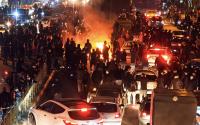1 February 2007Press Association
Gordon Brown faces legal challenges from airlines and tour operators over a controversial doubling of air passenger duty that comes in today.
The threat came as environmental campaigners also warned that the measure would do nothing to stop people flying as much.
The chancellor has come under fire from MPs for introducing the increase within eight weeks of announcing it to the Commons, who had not had a chance to discuss it. A barrister warned yesterday that there might be no legal compulsion for airlines to pay up because it had not been approved by parliament.
The Board of Airline Representatives - whose clients include BA, Virgin, Emirates and Air France - today warned that it was considering legal action. Chief executive Mike Carrivick said: "We're not ruling it out. It's a very complex area and it brings us into debate with either domestic law or international law."
Mr Carrivick said the retrospective application of the duty to flights from today which had already been purchased at the time of Mr Brown's December 6 announcement, was a "huge burden". He also doubted the effectiveness of the move as a so-called green tax.
"Taxation, as often has been said before, is a very blunt instrument," he told BBC Radio 4's Today programme.
"There is no sign or indication as how the money raised from increase in APD is being used for environmental reasons." He added: "There is no deterrent there, this is purely a money-grabbing exercise."
Mr Carrivick said that airlines were in an "invidious" position because if parliament approved the duty retrospectively they would be liable for "well over £100 million".
"These are amounts that cannot just be absorbed by all carriers," he warned.
Tour operator First Choice said it was launching a legal challenge against the duty increase, which had cost its industry about £45 million. Dermot Blastland, managing director of the company's mainstream section, said tour operators were unable to collect the duty retrospectively, unlike airlines.
He told Today that the tax had nothing to do with customers, but airlines, and had been "rushed" in.
"We are also challenging the fact that they have brought it in so quickly in any case.
"The lawyers have said they don't think they can, they've already failed to get Parliamentary approval correctly in the way they've processed it.
"So we're just challenging, we feel it's been rushed in, it's unfair and particularly the retrospective nature as well.
"We've indicated that we will take it seriously. We are so angry about the way it's been done that we will pursue it."
Tony Juniper, of Friends of the Earth, said that the measure would fail to challenge behaviour or raise enough revenue to provide adequate transport alternatives. He added that the Government needed to send a "signal" to air travellers that there were better forms of travel, such as high-speed rail.
Although airlines have already collected the tax rise from many passengers, many will turn up at airports today to find they have to stump up the additional cash. Tickets bought since Mr Brown's announcement have included the tax rise in the price but passengers who had already booked flights have faced uncertainty over paying extra.
British Airways decided to absorb the tax hike at an estimated cost of £11 million, meaning that passengers who booked before the announcement have not been asked for more. But most other airlines have chosen instead to pass on the increase.
Travellers booked on some low-cost carriers have seen the extra charge added to their credit card bills. Others were told of the increase by email, with one airline warning those who failed to pay up in advance would not be allowed to travel.
Yesterday, a barrister commissioned by the Conservative Party said the Treasury could lack the authority to collect the extra cash because it has not been sanctioned by parliament.
Adrian Jack, of Enterprise Chambers, also suggested that passengers might be within their rights to refuse airlines' demands to cough up the money in retrospect. He said: "In principle they could refuse to pay the addition where they purchased their tickets prior to the Chancellor's announcement, because there would be no contractual obligation to pay any more."
But the Association of British Travel Agents (Abta) said any passengers who had yet to pay up would probably face shelling out the extra cash at check-in. It added that to the "best of its knowledge" only BA and Continental Airlines had decided to absorb the cost of the tax rise.
Anyone who is flying as part of a package tour booked through a travel agent will also have escaped without paying extra. Air passenger duty is increasing from £5 to £10 for economy seat passengers taking domestic and European short haul flights, and from £20 to £40 for economy seat travellers on long haul flights. Business and first class passengers face increases of £10 for short haul flights and £40 for long haul.
http://environment.guardian.co.uk/print/0,,329702610-121526,00.html






